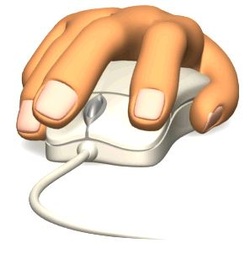 Friend, how often have you visited a website that you would not publicize on the front page of a newspaper? Let’s be honest, at some point we all have, even if it was by accident. This week, however, I have developed a renewed respect for cyberspace. I have had to acknowledge that even if one operates anonymously they are not at all anonymous. What brought this about? On the back of Fat Creep™, essentially my new business and hobby I designed a newsletter. I have been interested in the world of business since before I was a teenager (weird, I know) and I’m always curious about new practices and methods. Last year, I noticed that several emails that I received had a “Mailchimp” stamp on them and I clicked on that stamp to investigate what Mailchimp was. Mailchimp is basically an email marketing resource but it goes far beyond that. I decided to use Mailchimp although I didn’t realize the full extent of its capabilities. As a starting point for creating a newsletter, I contacted all of my friends including most of my Facebook friends to ask if it was okay to include them. Given my belief that most of my friends would be okay with it (and note, I am one of those people that actually knows every Facebook friend) I told my friends not to reply if my newsletter was welcome to spare them the effort. I made this explicit request for permission in the first two lines of the email to keep things transparent and I sent the request from my private email to ensure that it was actually read. I gave it a week because I know some don’t check their messages daily. Following my first newsletter, a week later, I had the privilege of a status report and I was astounded, completely astounded at the level of detail in that report! Not only did it show how many emails had been opened but it also reported how many times the email had been opened, whether any links in that email had been clicked, which emails had bounced, which people had unsubscribed from the letter and who had hit the SPAM button! I knew exactly who had done what. I was pleased that only two people had hit SPAM but given I had requested their permission I was not impressed, they were promptly unfriended on Facebook for irresponsibility. Those that properly unsubscribed I respected because I believe everyone should only receive information that they need and want to receive. The whole experience, made me realize the extent to which the realm of cyberspace is not private. There is probably nothing less private. EVERY SINGLE CLICK, is recorded. If you are doing anything on your PC or phone that you would not be proud of, stop because you do not know how that click will one day hold you back, or worse be provided as evidence in court to build an image of your character. Friend, you have been warned – cyberspace is dangerous, very dangerous. Keep it clean, keep it squeaky clean.
2 Comments
 Source: Wikipedia Source: Wikipedia Sometimes my life reads like a Hollywood movie. Last week my home was almost robbed. Something I thought only happened to other people; indeed, some events, I expect (and prefer) to see only on film. Roused by a strange sound my husband walked into the kitchen to find a South London chav trying to break the window open with a crowbar. Minutes later my house was occupied by the police, sniffer dogs and forensics. We were lucky though, we learnt a cheap lesson, two other homes in the neighborhood were not so lucky. People may blame such behaviour on the recession, a lack of jobs, desperation, life but whatever the reason is we responsible citizens need to protect ourselves against such selfish acts. Thieves have little regard for the hard graft that underlies a purchase. I was a little blasé about the almost-robbery until our neighbor’s CCTV showed that the thieves specifically targeted us. A lady drove by and knocked on the door to check if anyone was home – my husband didn’t answer so she drove off and returned three minutes later to drop off a lad that never reappeared on the CCTV screen. When my hubby caught him, he leapt over the back fence. If this chav had found our car keys the police reckon he would have loaded anything that he could sell into our own car and driven off with it! What can you do to protect you and your family: 1. Lock interior doors when you leave the house. This makes it harder for thieves. Once they get into one room a locked door means they can’t get into another room. With the new obstacle the thief may get turned off and leave because the question in their mind will be “if they bothered to lock this door, what other obstacles will I have to get through?” 2. Get a personal alarm. If a thief ever manages to get close to you an alarm may scare them off because it attracts attention. 3. Get a safe and lock all your valuables in there: laptops, iPads, cameras, car keys. Make sure it can be bolted to the floor or a wall so that it can’t simply be carried off. They are not as expensive as one might think, £150 - 200 will get you a decent one. 4. Get a domestic alarm system with PIR movement detectors. Think: Mission Impossible. If the thief walks past a ‘sensored’ area or breaks a door or a window the alarm is triggered. Look for systems that can be enacted remotely with a fob. Again, about £200 is enough for a quality alarm system. 5. Lock your bedroom door when you go to bed. I used to love sleeping with my bedroom door AND window open! I gave up on having the window ajar because my husband hates that, he gets cold easily. After the almost-robbery we started locking the bedroom door too but that only lasted until we got the alarm system. If you don't have one, lock your bedroom door. My colleague knows a man who’s house was broken into, the intruder went all the way to his room, gave him a light tap on the shoulder and said, “We know you have two kids in the next room, give us your valuables and we’ll be on our way!” There’s only one reasonable response to that situation, you shouldn’t risk your children’s lives – give what you’ve got! 6. Get CCTV. Quite pricey but if you have expensive kit in your house that you need to protect, it could be worth it. A quality CCTV system will set you back £500 at least, a grand easy. 7. You can insure some goods against theft but some things are irreplaceable like family pictures that haven't been backed up elsewhere. I wish we could all live in a world where front doors are left open without concern. I grew up in such a world but things have changed radically since. Some people have zero scruples, they blame the world for their problems: what they can’t get for themselves, they will take any way. You’ve been warned.
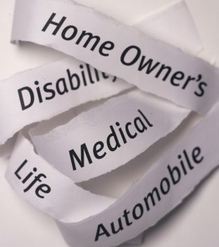 Source: insurancequotetips.co.uk Source: insurancequotetips.co.uk Before I became a working adult I used to think that all insurance was a big scam: you pay loads of money every month to cover a most unlikely event so what’s the point? If I was ever asked to buy insurance I said ‘no’ without so much as thinking about it. I relayed this view to a colleague of mine and he told me that he always insures what he cannot self-insure and in his own life that was mainly his home. By this, he meant that if his house was destroyed by some accident he couldn’t afford to rebuild it in the same way he could easily replace say, a stolen phone with another phone. He didn’t realize it but those words held sway with my financial thinking from that moment onwards. Having been converted, buildings insurance became my first ever purchase of insurance. After a few home accidents: a broken toilet one time, plumbing damage the next, I decided that I also needed home care insurance; these type of incidents happen when you least expect them to and have a knack for hitting you when you’re the most broke. If you ever have plumbing trouble calling out a plumber to fix the issue will set you back £200-£300 easy, and that’s if it’s a simple problem. Just before Christmas I had to make two insurance claims, a property I let out had a bad leak so the home care insurer had to be called in; then, because of serious water damage to the ceiling the buildings insurer had to come and correct that permanently. My nifty filing system meant that I found both insurance contracts within ten minutes and knew exactly where I stood from a financial standpoint. If I hadn’t been insured I would be looking at an outlay of£4,000 to £6,000 and the likely loss of a tenant. I don’t have that kind of money just sitting around. As it stands, I only had to pay a £250 excess. Home care and buildings insurance cost a combined total of £500 per year. This figure sounds exorbitant but as the above example shows when something goes wrong it could cost much, much more than that to fix. I can live without my phone, laptop, TV, even my couch but I need somewhere to live so I am willing to insure my home whatever the cost. In late 2006/early 2007 I even took out private unemployment insurance that would cover my mortgage for 12 months if I ever lost my job. At £12-15 per month it was ultra cheap and the knowledge that my mortgage payments were covered gave me great peace of mind when the credit crunch hit in late 2007. Unfortunately, I had to cancel it in 2009 when the premium was trebled due to the recession and the large number of unemployed but by then I felt somewhat more secure in my new job. So, next time you’re contemplating whether or not to buy insurance, ask yourself if you can self-insure the item in question. If not, buy the insurance.
|
Archives
December 2015
Categories
All
By Heather Katsonga-WoodwardI'm always thinking, debating, considering and revising my views - some of those deliberations will be shared right here. |

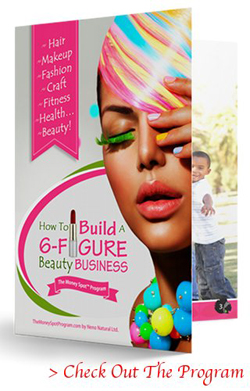
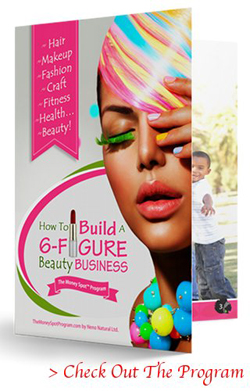
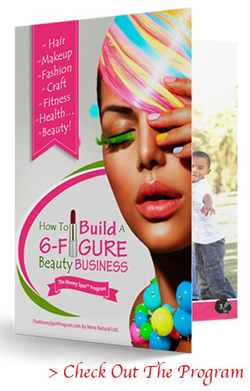
 RSS Feed
RSS Feed
